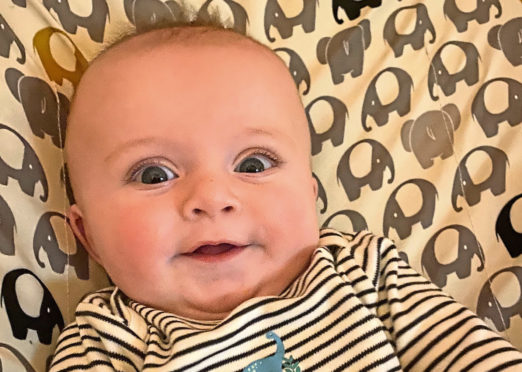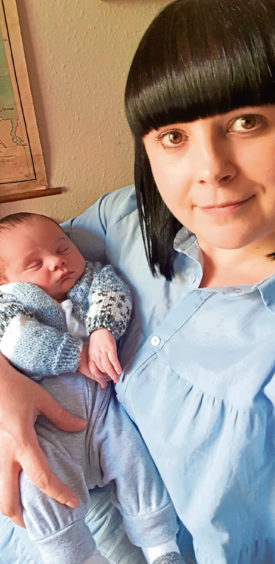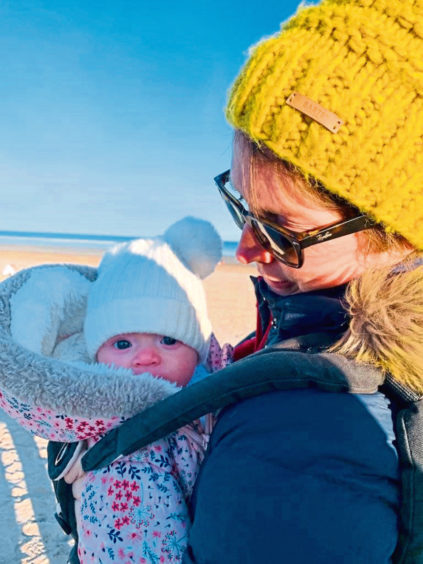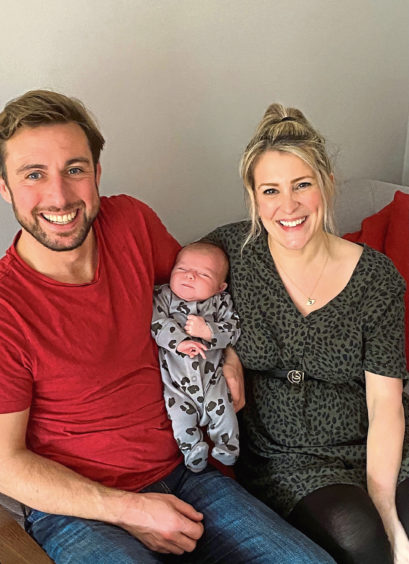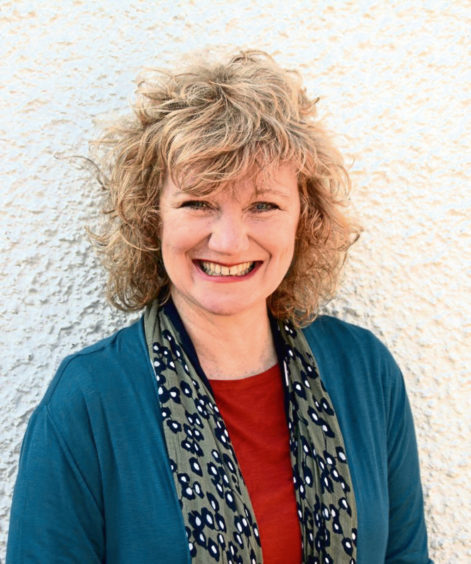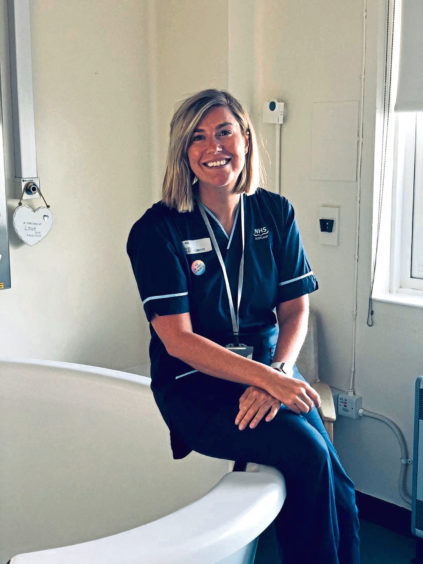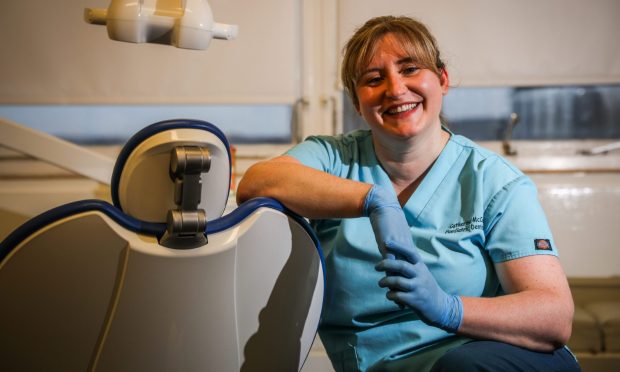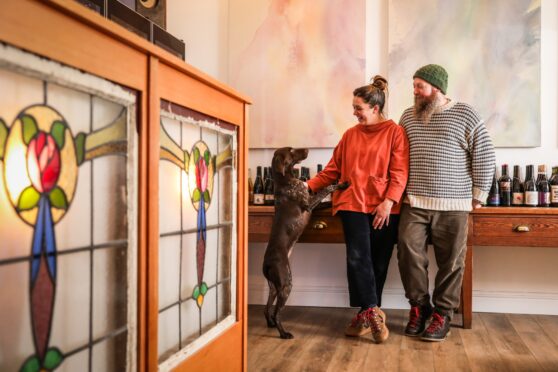Becoming a parent is an exciting and sometimes nerve-wracking time but Covid restrictions have brought new challenges. Nora McElhone found out how some local mums have coped with welcoming new babies during lockdown.
Alice Marra and Colin Reid welcomed baby Angus Reid-Marra to the world in April 2020. Alice, 41, is a musician from Dundee, where she lives with husband Colin and their little boy who is now nearly 10 months old.
“We were at the height of the pandemic,” Alice recalls. “Colin and I attended two antenatal classes at the beginning of the year, then they were cancelled. I still saw my community midwife regularly and spent a lot of time at the antenatal clinic at Ninewells due to reduced movements. Everyone who looked after me was amazing.”
Despite that support, Alice says the uncertainty of the pandemic was stressful: “Colin was not allowed to attend my final few growth scans and I was quite anxious as the rules kept changing and we were unclear whether he’d be allowed to attend the birth.
“I ended up being induced and then having an emergency C-section. Thankfully Colin was there but he had to leave just a few hours after Angus was born. I had to stay in hospital for four days and I’m really sad he missed out on those first few precious days.”
Alice is glad those rules about visiting have now changed. “I can see why they were in place last year when everything was so unknown,” she says. “But I had just had a major operation and couldn’t lift my baby myself. I needed my husband there but it just was not allowed. Colin brought some extra clothes up for Angus and I wheeled him round in his cot so Colin could see him through the window of the ward. It was heartbreaking!”
Coping with isolation
At a time when support from close family and friends is so important, Alice and her new family were completely isolated for the first few months. “When extended family bubbles became a thing, my mum – who lives alone – was able to visit the house. She held her first grandchild for the first time when he was almost two months old.”
Isolation can be a challenge for first-time mums at the best of times and Alice says that she did find it tough as there was “no one to just give you a break for an hour to catch up on sleep or make some food. Colin was fantastic and looked after us really well while I recovered from the surgery but we needed our family and friends around.
“Being a first-time mum I have nothing to compare this with, but I am certain the hard work and isolation that comes with having a baby in a pandemic is on another level. I feel completely robbed of the experience of having a baby and going to classes, meeting other parents and babies and giving Angus new experiences.
“We were able to go to a few classes in the autumn last year and we really made the most of that, going out for lunch with my friend who had a baby three weeks after me.”
Alice is concerned about the impact spending so much time at home will have on Angus in the long term.
“He’s not interacting with anyone except me, Colin and my mum. He’s a really happy, sociable wee boy and I just have to hope and pray he’ll get to have some fun soon.
“I agree with most of the restrictions put in place over the past year but it doesn’t stop me worrying about the impact this is having on my baby. We are looking forward to doing very normal things, like going to a baby and toddler group and going to my friend’s house for a coffee.”
Taking things one day at a time
Sam Mace, 42, is a Pilates and barre instructor and fertility mentor who gave birth to her second child, Charlotte, in September 2020. There were fewer restrictions in place in hospital but Sam’s pre-natal care was directly impacted by Covid. “From my eight-week scan right up to my 28-week scan, my husband was not allowed to join me.”
For Sam’s 32-week scan her husband was allowed to attend. The family were also faced with difficult decisions in terms of Sam’s care, as she explains: “Due to my recurrent miscarriage history and age I was seen every four weeks from my 12-week scan.
“With my previous pregnancy (my son) I was taking immune suppressant medication due to recurrent miscarriages. Although the obstetrician at Ninewells did offer to support me taking them again, with the uncertainty of Covid I chose not to suppress my immune system with this pregnancy.
“I was still very guarded and took everything one day at a time for fear of miscarrying. I was teaching my Pilates and barre classes over Zoom which was a welcome distraction from my anxiety.
“I went off on maternity leave at 35 weeks, thinking I would have four weeks to prepare. Six days later I woke up at 11.30pm with some mild to medium cramping. I woke John – my husband – up, not sure what to do and convinced I was not in labour.”
However, baby Charlotte was indeed on her way and her speedy arrival meant she spent 12 days in NICU to help with her breathing.
Sam says: “When she was discharged I felt I had the support of NICU and could call them if any further issues. I didn’t end up having a community midwife come to visit but the health visitor did ask if I wanted them to come. If Charlotte had been my first baby I would definitely have wanted their support.”
When she came home from hospital with Charlotte the restrictions had been relaxed a bit so she was able to enlist some help from her mum. She does remember that she found it incredibly challenging: “Freddie was not allowed to visit us in hospital,” and describes those days as “the first time I truly felt split in two”.
“Not being able to attend baby groups with Charlotte has been difficult. I have met with friends who have a child the same age as Freddie for walks. Once things are more normal I’m looking forward to going to some baby groups or even meeting for a walk with my local buggy club.”
If she could share some advice with other parents it would be this: “These are unprecedented times and it’s OK to find joy in the simple things. Having an afternoon watching Netflix drinking hot chocolate. Let people help – my neighbour walks our dog.”
For Sam one thing is sure: “Charlotte has been the bright light that came out of 2020.”
A 2020 blessing
Claire McCormack, 39, also welcomed her first baby last year. Along with partner David Webster, the couple became parents to baby Sebastian Webster on October 5.
Like other mums, Claire’s experience of becoming a parent has been different to the norm, but timing meant that she and David were both able to attend her 12-week scan at Ninewells. “However, I had to attend the 20-week scan on my own,” she explains.
“The care and treatment at the hospital could not have been better. When my contractions were ramping up they allowed me to stay, made me as comfortable as I could be. David was with me – he had to wear a face covering and I wasn’t required to. I can’t really imagine being in labour with a face mask on! I had to stay in hospital for a few days after the birth and at that time I was only allowed one of my two named visitors – David and my mother – at any one time.”
She feels they were well supported once they came home from hospital, and luckily Sebastian has been a good sleeper right from the early days, but Claire does admit the family have missed out on connecting with other new parents.
“There really hasn’t been any opportunity for that. Sebastian is starting Baby Sensory classes – which are online at present – so that will help. My family and David’s family fell in love with Sebastian right away, just like we did. He is such a happy, little soul – his smile lights up what has been an otherwise bleak world in recent times. Things are looking up though with the rollout of the Covid vaccine. I feel so blessed to have Sebastian.”
Home is where the heart is
Suzanne Zeedyk is a research scientist and founder of Connected Baby – an organisation that helps parents and professionals use the science of connection in their relationships with young children.
Although she agrees the current situation is tough, Suzanne reassures parents they shouldn’t worry too much about spending a lot of time at home.
“Babies’ biggest needs are emotional ones,” she explains. “They need help with big feelings and they need a companion for exploring the wider world. Babies can be understandably exhausting for parents, because they need so much help with their feelings. All that emotional attention parents give them is helping to build their brain and the stress system in their body.”
She recommends doing something that can seem counter-intuitive to new mums – making their own emotional health the priority. “If you are meeting your own emotional needs, then you are better placed to meet your baby’s emotional needs.
“Get yourself lots of support,” she suggests. “Try online baby groups, even if you know that once a week you are going to baby sessions and connecting with others you are meeting your own needs.”
Smiling behind the masks
Senior charge midwife Suzanne Knox has been helping mothers in the Angus area to navigate pregnancy and birth during the pandemic. “Things moved quite quickly during the first lockdown,” she says. “Partners were not allowed to attend appointments or scans. Over time we adapted as we had time to plan and understand the safest way to proceed for both staff and families. Partners can now attend for labour and birth and visit the ward – although children are not allowed to attend appointments or visit the ward.
“I think there was an increase in anxiety for everyone. This journey, which is supposed to be exciting and shared with loved ones, became one that no one could have envisaged and things changed very quickly.
“For many first-time mums this is a time when they meet lifelong friends and are out at groups, but this is so different with many people meeting for the first time online,” explains the midwife. “Everyone wants to share this time with their family and friends and to show their new baby off. Not having parent and baby groups is hard for those who live alone with their baby or have a partner who is perhaps back to work.”
The midwife would also reassure new parents, saying: “The most important people for a new baby are their main care givers in the early stages of their lives. Cuddles and play stimulate brain development.
“We are still here for you any time you need us. Please try to enjoy your pregnancy and new baby, despite all the craziness in the world around you. It’s OK to feel worried, but the safety of the women and families of Tayside is our priority and we will continue to do our best for you. You may not be able to see it behind the masks, but we are still smiling.”
Online resources for new parents:
Online library and Bookbug sessions
